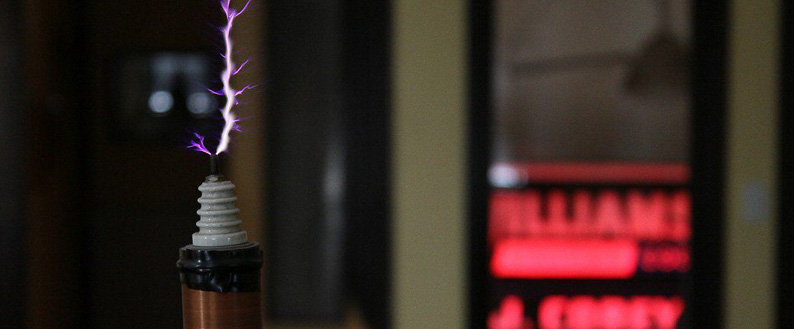The Precarious State of Democracy: America’s Crossroads Moment
By David Strand

I’ve always had inclination to look at history’s trajectory. And today, the fears many have about where our current state of politics might ultimately lead for government in America are reasonable. For me, understanding this development as a logical chain of events tied to fundamental aspects of human behavior and group dynamics, sheds light on why the political climate today feels so polarized and precarious.
To begin with, democracy was designed to ensure that the will of the people would be represented, empowering citizens to have a voice rather than be subjected to the unchecked rule of a monarch or tyrant. But as history shows, political systems reflect the people within them—and the struggles for power, fear of change, and desire for influence are constants in human societies.
For much of U.S. history, conservatism was closely tied to values rooted in tradition and continuity, while progressivism focused on reform and inclusion. As progressive movements successfully achieved critical milestones—emancipating enslaved people, expanding civil rights, securing women’s right to vote—the face of America gradually changed, becoming more inclusive of different races, religions, and lifestyles. For a sizable portion of Americans, however, each progressive shift meant the loss of a familiar social order. This is not a unique American reaction; human nature shows a strong preference for stability and familiarity, especially within established groups.
Electing Barack Obama, the first Black president, marked a watershed moment. It symbolized to some the nation’s progress and growth, yet it represented a turning point for those who saw it as a loss of their longstanding influence over the country’s direction. The subsequent nomination of Hillary Clinton for president was another significant departure from traditional power structures. For many Americans, seeing women, minorities, and other historically marginalized groups increasingly represented in leadership evoked pride; for others, it stirred feelings of displacement and fear that their values and way of life were under siege.
Such dynamics illustrate a core principle of human psychology: when groups feel their identity is threatened, they tend to close ranks and fortify their positions. These feelings were amplified by an increasingly globalized culture that could be perceived as dismissing or even denigrating traditional values. A significant number of Americans, especially those identifying as conservative, came to feel their voices were no longer valued by mainstream culture or policy. They felt "outdone," and with traditional compromises no longer securing their influence, the pull toward more extreme responses began.
Donald Trump’s presidency and the fervent movement around it represent a powerful manifestation of these dynamics. His rhetoric, which shunned compromise, appealed to a base that felt alienated and eager to “take back” their country. When compromise and middle ground feel ineffective, groups often radicalize, opting for a leader who promises to enact change through sheer will and defiance of the status quo. For some, Trump’s refusal to “play by the rules” validated the need for direct, uncompromising action. January 6 exemplified this, with discontent escalating into outright conflict.
A possible second Trump term represents more than a policy shift; it poses a structural challenge to democracy itself. Authoritarian systems gain strength when a group, feeling perpetually undermined, supports centralized power to enforce its values unilaterally. The inherent danger in authoritarianism, however, is that it inevitably erodes the liberties it claims to protect. Civil discourse becomes risky; opposing voices get sidelined. If America were to drift further into authoritarianism, we could expect to see a growing suppression of dissent, curtailed media freedoms, and an erosion of individual liberties.
Ultimately, human behavior shows that inclusivity requires ongoing, patient work, while fear and exclusion can spiral quickly. The divide between different groups' visions of America can seem unbridgeable, but it is only through dialogue, mutual respect, and a renewed commitment to democratic values that the country can maintain its founding ideals. Recognizing these patterns in human behavior reminds us that while authoritarianism is a tempting solution for some, its victory would mean abandoning the principles that define America as a “government of the people, by the people, for the people.” Civil discourse, compromise, and unity are not weaknesses—they are the very foundation of any enduring democracy.
It’s a pivotal time for America, as we make choices that will resonate for generations. Democracy was founded on the principle of escaping tyranny and establishing a government where civil discourse and the will of the people guide the nation. But as America’s demographics and values shift, some segments of society feel a loss of control over the country's future—a feeling that has intensified with each progressive milestone, from electing Barack Obama as our first Black president to seeing a woman, Hillary Clinton, become a major-party nominee.
For those who felt left out or overshadowed by these changes, the nomination of Kamala Harris as a mixed-race woman to the vice presidency seemed like a step further down a path that threatened their vision of America. The Democratic Party’s embrace of Harris as a symbol of inclusivity and progress struck some as an existential threat to their way of life. This sense of “losing” the nation stirred feelings that, for some, had long been latent. Many who previously didn’t voice concerns about the nation’s changing face now felt emboldened to do so, supported by a social circle that echoed their unease.
Donald Trump, a former Democrat and self-made celebrity, quickly became the emblem for this group. His populist rhetoric and refusal to follow traditional political decorum made him a champion for those disillusioned by what they saw as a liberal agenda. Though Trump presented himself as a leader of change, he was also shaped by the movement behind him. His ego, wealth, and fame made him an easy symbol to rally around; to his followers, he seemed like someone who would “take back” America. To Trump, the role fed his self-image, allowing him to believe he was the originator of this pushback, even as his policies and stances often reflected the desires of those around him.
A potential second Trump term would signify more than policy changes. It would suggest a change in democracy’s very structure. Democracies succeed because they are built to self-correct, to evolve, and to uphold accountability. They allow for open criticism and encourage diverse perspectives to find common ground. In contrast, authoritarian regimes crush dissent and stifle innovation, ultimately weakening the very people they aim to control. An America drifting toward authoritarianism would be abandoning its core values—freedom of expression, the exchange of ideas, and the fundamental right of each person to have a voice.
That’s why electing leaders like Kamala Harris, who represent America’s diversity and inclusivity, was critical to Democrats. America’s strength has always been its commitment to democratic ideals—a beacon of hope for countries aspiring to democracy. When people look to the United States, they see a nation that values each individual, embraces progress, and isn’t afraid to grow. It’s not a “kinder, gentler” version of America; it’s a stronger, more resilient one that evolves to meet its people’s needs and the world’s challenges.
On Tuesday, please vote. This isn’t just about supporting a particular party; it’s about supporting a vision of America that will define what we hand down to future generations. Historians looking back may view this as a pivotal moment when America either reaffirmed its democratic ideals or began to veer away from them. What kind of country do you want to pass down? One where diversity and dialogue drive progress, or one where division and fear hold us back? Vote for the values you believe in, for the America you want to build, and for the future generations who will inherit the nation we shape today.
I





